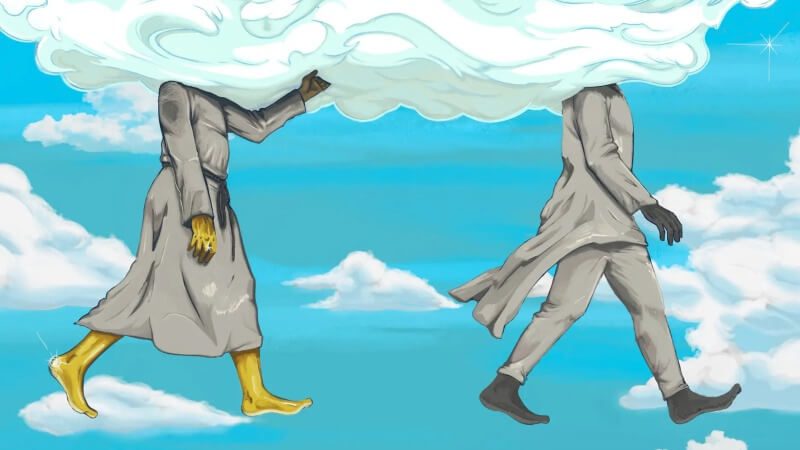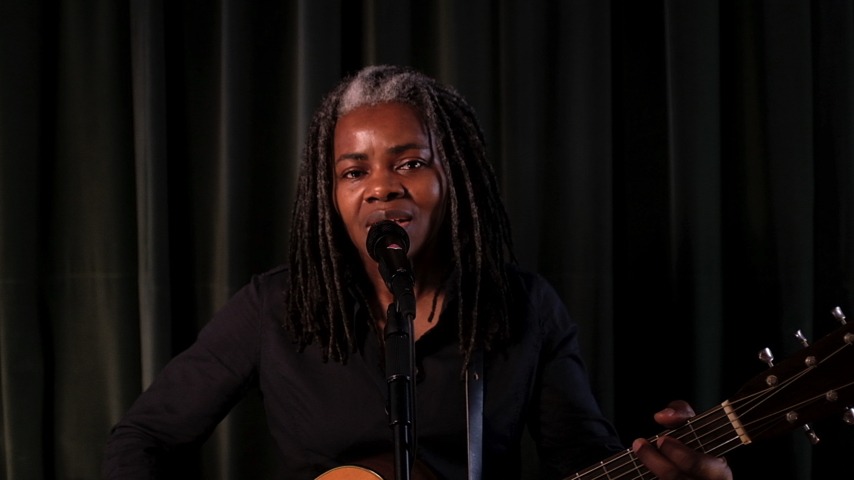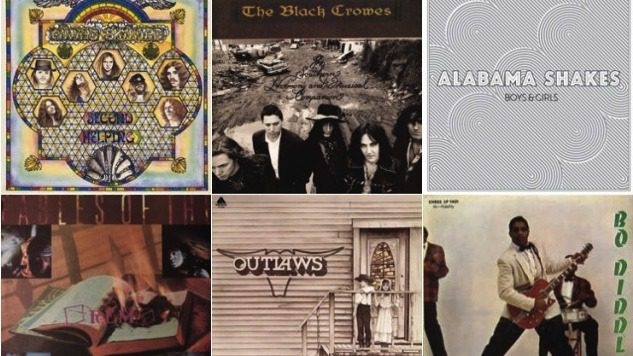The album opens with a roll call courtesy of Giancarlo Esposito, reading off the record’s truly impressive list of features (Black Thought, Slick Rick, Q-Tip, and more) as a means of highlighting the wide umbrella of peers and dedicants De La Soul has garnered over the years. But this sequence on “Cabin Talk (album intro)” does more than just boast. It immediately points a light towards the central catalyst of the project: after reaching Posdnous and Maseo, a call for Dave (AKA Plug Two, a.k.a. Trugoy the Dove) echoes into the ether with no response due to his untimely passing in 2023, just weeks before the entire De La Soul catalog was widely available to the world for the first time in decades.
Dave understandably appears on less of the record than Pos and Maseo, but his moments pack some big punches (his verse on “Good Health” is some of the most intricate lyricism De La Soul has ever put to tape, full stop). Even so, his loss is felt across the album. On “The Package,” there’s some significant digital artifacting that makes it clear Dave’s verse was pulled from a rougher recording. But in an era where any number of tools could have been used to clean up the noise off his track, or, God forbid, replace Dave’s verses entirely with AI, the artifacting is a welcome certificate of authenticity. It reinforces that the record was made in light of, rather than in spite of, Dave’s death.
But even detached from the emotional context of the album, Cabin in the Sky sees De La Soul at their freshest on all fronts since 1996’s Stakes is High. With its sing-song hook, loose Pete Rock beat, and killer Q-Tip verse, “Day in the Sun (Gettin’ Wit U)” has all the makings of a classic De La Soul cut. Throughout the record, Posdnous sounds particularly inspired. He channels his best Common impression to keep up with Nas on “Run It Back!!” Though Nas effortlessly spits the album’s best verse, Pos’ accentuated flows and intricate wordsmithing makes for one of the best verses of his entire career. This is also some of the best production De La has ever appeared on, with the same focus that made records like The Grind Date so memorable. DJ Premier puts forth some of his best production in decades, scratching on “Sunny Storms” through a number of classic rap cuts with a vital precision. “Will Be,” a brief but jumping disco cut produced by Pos, reminds of De La’s most danceable cuts, like “A Roller Skating Jam Named Saturdays” and “Kicked Out the House.” The sonics of De La Soul, which have always felt produced with a smirk and a joint, remain true to form across Cabin in the Sky.
There’s a monologue from Dave near the end of “Patty Cake,” a slim but enriching track built around stream-of-consciousness introspections from Posdnous and Trugoy, where he discusses the release of J Dilla’s vaults following his death in 2006, lamenting that “there’s certain shit that shouldn’t have come off the beat tape.” It’s no surprise the topic of posthumous release crossed Dave’s mind, but it’s still incredibly haunting to hear his ruminations from beyond the grave. It’s a massive act of vulnerability to communicate that they understood what this album could have been: a hollow excavation of Dave and De La Soul’s vault for a few units sold. But this honesty does much to explicitly communicate the prioritization of Dave’s reputation and preservation of the De La legacy that’s already felt on the record.
Cabin in the Sky feels like a quintessential De La Soul album, for better and worse—it boasts the same feats that their music has always accomplished at its best, but it’s also bogged down by the same ills that have plagued the group their entire career. It is, though not by much, their longest record ever; like every De La Soul album before it, it’s hard not to feel there’s fat to be trimmed (though, in De La tradition, no one will ever agree on what needs to go). Pos, Maseo, and Trugoy have never been A-tier rhymers, but the rustiness resulting from their time away is especially accentuated by their company here. Black Thought, Nas, and Q-Tip, who are still at the top of their game, rap circles around the trio. And it wouldn’t be a De La Soul album without some overconceptual tracks like “A Quick 16 for Mama” and confusing skit narratives. Eventually though, like the game show on 3 Feet High and Rising and the haters on De La Soul Is Dead, these overwrought moments settle into being a lovable quirk of both the record and the trio themselves.
There is very little precedent for the sort of excellence De La Soul is achieving so deep into their career. To have one of rap music’s first great groups releasing great material 36 years after their original debut is a testament to the relative brevity of the genre’s lifespan and the unknown frontiers still possible within the culture. It lends to a massive optimism for the next 50 years of hip-hop, especially around a time when its doom and death are being proclaimed at every street corner. What will hip-hop look like in 2050, knowing that the current class of top talent could very possibly continue their excellence? That, in Daisy Age terms, is the real magic of Cabin in the Sky.




